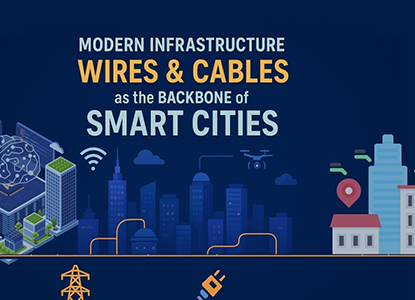
How Fiber Optics Are Powering India’s Smart Cities and Digital Infrastructure
Indias smart city mission is transforming urban living with advanced connectivity, automation, and real-time data solutions. At the heart of this transformation lies fiber optic technology,enabling high-speed, reliable, and future-ready digital infrastructure across the country.
- Backbone of High-Speed Connectivity: Fiber optics provide lightning-fast internet speeds essential for smart governance, digital services, and efficient public systems. This ensures seamless data transfer, enabling smoother city operations and connectivity for millions.
- Enables Smart Traffic Management: Smart traffic systems rely on real-time data from sensors and cameras. Fiber networks ensure fast transmission of this information, helping reduce congestion, improve road safety, and optimize traffic flow.
- Supports Public Wi-Fi and Digital Services: Smart cities need extensive public Wi-Fi zones, digital kiosks, and online civic services. Fiber optics provide the bandwidth and stability required to support these high-demand platforms continuously.
- Enhances Security Through Smart Surveillance: High-definition surveillance cameras depend on fast, uninterrupted data links. Fiber optics allow cities to monitor public spaces effectively, strengthen law enforcement, and respond quickly to emergencies.
- Powers IoT Devices and Smart Sensors: Smart cities use thousands of IoT sensors for waste management, water monitoring, air quality checks, and more. Fiber networks handle the massive data load these devices generate with ease.
- Improves Healthcare and Education Delivery: Telemedicine, online learning, and digital classrooms require stable high-speed internet. Fiber optics enable these services, ensuring improved access to quality education and healthcare across urban areas.
- Boosts Economic Growth and Innovation: Reliable fiber networks attract tech companies, startups, and global investors. This accelerates job creation, digital innovation, and economic development within smart city zones.








